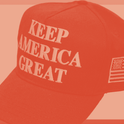On his 100th day in office, Donald Trump propelled Mark Carney to power. Trump has created a national emergency in Canada with his huge tariffs, intensified by fears that his “51st state” belligerence might even result in some kind of invasion. As a former governor of both the Bank of Canada and the Bank of England, Carney became the heavyweight candidate best able to outwit the looming dictator, unlike the mini-Trump leader of the Canadian Tories, Pierre Poilievre.
It looks as if Australia may follow suit on Sunday and re-elect its sitting government, in this case Labor, in no small part because it is seen as the most credible anti-Trump of the two contenders for power.
Meanwhile in Germany the incoming chancellor, Friedrich Merz, won an election two months ago pledging to achieve “strategic independence” from Trump’s America. Merz was reacting not only to Trump’s anti-European, anti-Ukrainian and pro-Vladimir Putin rhetoric but also to direct interventions in the German campaign by Elon Musk and JD Vance in support of the far-right Trumpite AfD party.
Join the dots and two things are clear. First, democratic electorates outside America are repelled by Trump, both the direct threat he poses to their economies and security, and the general sense that he is behaving like a gigantic out-of-control bully. Secondly, there is a desperate urgency among the leaders of the non-American democracies to find ways of containing Trump, not least by coming together in new and stronger alliances for trade and defence.
In Europe, plans are already advanced for a new form of Nato without the US, and for defence procurement from within this new non-American bloc. This would include Canada immediately, and might extend to the Asian and Australasian democracies. Aukus—the US, British, Australian defence pact—is only four years old yet already seems of another age. There is a big question mark already as to whether its agreements on military technology are still viable in the light of Trump’s ambivalence about working with western partners.
Trade relations between the non-American democracies will also be intensified, and the non-Americans will not be following Trump into a trade war with China. Britain needs to negotiate a bold new trade deal with the European Union, preferably to re-enter the customs union and as much of the single market as possible. The UK-EU summit in May is a first tentative step on this road.
Trump himself constantly zigzags. Some of his tariffs have lasted less than 24 hours and some are in suspense. He even managed to criticise Putin this week after a civil encounter with Ukraine’s Volodymyr Zelensky at Pope Francis’s funeral. Optimists hope that on both trade and defence he might revert to a more sensible mean after the shocks of his first 100 days, particularly if inflation and recession beckon.
But there is no reason to believe that tactical retreats, subject to change day by day, tweet by tweet, will end Trump’s congenital instability on tariffs and defence unless he meets a massive roadblock. His big destructive tariffs on imported steel and cars are still in place, including against Canada. The trade war against China is still raging with a 145 per cent tariff. And the US is disengaging systematically from support for Ukraine.
The truth is that Trump is doing what he believes, both in using tariffs as a means of controlling and exploiting foreign countries, and in dismantling the American defence umbrella from Europe in the face of a Russian dictator he admires. In his first term, Trump was constrained by independent advisers and by fear of losing an election; these forces are much weaker in his second term. The bond market seems to have been the main constraint to date, and that has so far only tempered, not overcome, his wilder impulses.
All of which makes Carney’s situation acute in Canada. The Canadian exposure to American trade and reliance on American defence are second to none. Stronger trade and defence links with Europe and Asia have value as a signal that Canada will resist Trumpite imperialism as far as it can. But Carney’s best hope is that Trump and Xi Jinping remain in a protracted stand-off and that a US recession comes to pass. Canada would probably be hit by any recession as badly as the US, but just maybe it will force Trump into wholesale retreat.











